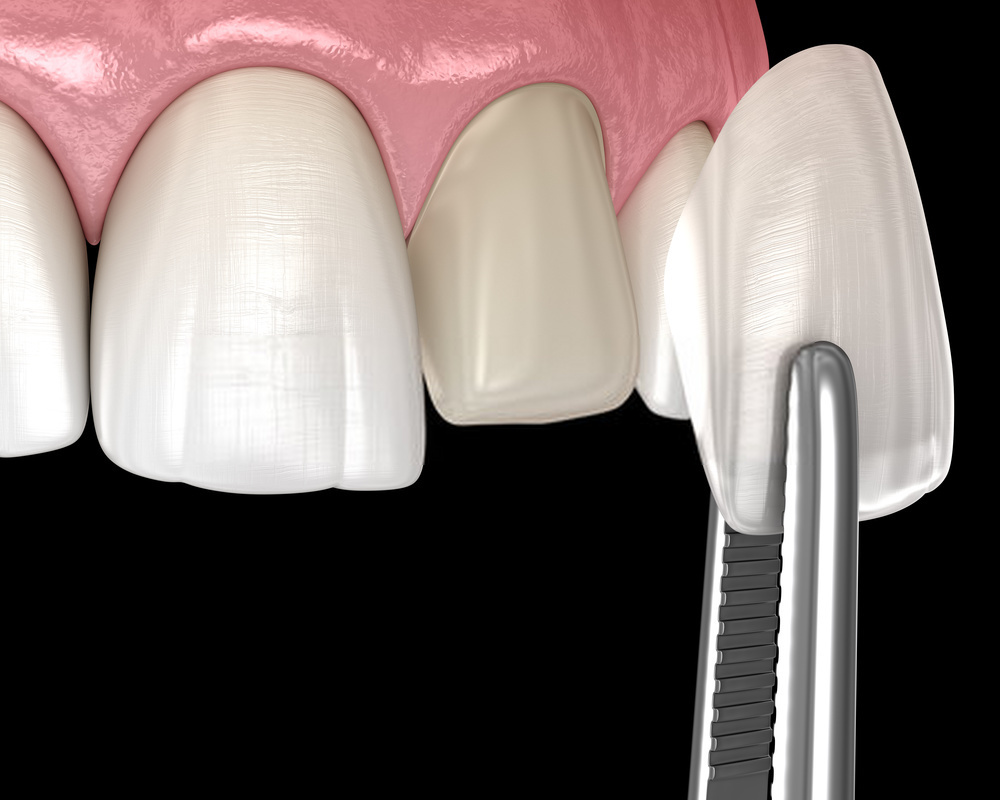VENEERS AT PURE DENTAL SMILES

WHAT ARE VENEERS?
The veneers process is an excellent choice for correcting a wide range of physical and cosmetic issues with your teeth.
However, veneers are a long-term therapy, and getting them installed is a significant decision. Until you and your veneer’s dentist determine whether the treatment is suitable for you, you must understand what they are, how much they cost, and how to care for them properly.
Dental veneers are a wafer-thin, made-to-order shell of tooth-colored components meant to overlay the front face of teeth to enhance the look while also offering durability and sturdiness equivalent to natural tooth enamel. During in-office treatments, they are tailored to the form of your teeth and fused to the tooth’s natural enamel. Porcelain or resin composite materials can be used to make dental veneers.
WHAT TYPES OF PROBLEMS DO DENTAL VENEERS FIX?
Veneers process is frequently utilized to fix:
- Teeth that are stained due to root canal treatment, tetracycline or other medication stains, insufficient fluoride, big resin fillings, or other causes
- Teeth that have been worn down
- Teeth that are cracked or broken
- Inverted, uneven, or oddly formed teeth
- Teeth that have gaps between them

WHAT HAPPENS DURING THE DENTAL VENEER PROCEDURE?
The dental veneer process is different depending on the type of veneer used.
The sections that follow will walk you through the procedure for each of the types listed below.
Porcelain Veneers
A dentist will initially extract some enamel and imprint the teeth to make a mold before the porcelain veneers process.
Following this initial appointment, the mold will be sent to a facility to create the custom-fit porcelain veneers. While a person waits for the lab to make the final veneers, the veneers dentist may install temporary veneers on the teeth. At the following session, the veneer dentist will check to see if they suit nicely and are the right color, and they will make any necessary changes. The veneer will next be bonded to the teeth by the veneers dentist.
Resin-Based Composite Veneers
The dentist will begin by cleaning, contouring, and prepping the teeth to install resin-based composite veneers. Dentists will glue and shape the composite material after preparing the teeth, altering the color so that they seem realistic in the person’s jaw.
The dentist will then clean and toughen the composite material with light. After the placing of veneers process has been done, the dentist will smooth them until they appear and feel like natural teeth.
TYPES OF DENTAL VENEERS
Dental Veneer Cost: How Much Does it Cost?
The cost of dental veneers varies depending on where you live. In some countries, like Australia, they are relatively inexpensive. However, in the United States, they can cost anywhere between $1,000 and $5,000.The cost of dental veneers varies depending on where you live and how many teeth need treatment. In some cases, the price may be covered by your insurance company. However, if you don’t have any coverage, costs will vary between $300-$500 per tooth.
How Do I Choose the Right Dental Veneers for Me?
The first step in choosing dental veneers is to determine if your teeth need veneering. This is done by looking at your smile and determining whether there are any areas where your teeth appear unevenly spaced or misshapen. You may also want to consider having veneers placed on your front teeth if you have gaps between your teeth.
VENEERS BEFORE AND AFTER
VENEER TEETH AFTERCARE
BENEFITS
- Avoid chewing on harsh items such as ice or your nails.
- Never open wrapping or condiment packets with your teeth.
- Avoid chewing with your front teeth. Instead, eat more challenging things solely with your back teeth; break up hard items like chocolates to make this feasible.
- Get splints or retainers to preserve your veneers if you smash or grind your teeth during sleep.
- When participating in sports, you must use a mouthguard.
CONTACT US TODAY
FILL OUT THE FORM BELOW AND WE’LL GET BACK TO YOU TO SCHEDULE AN APPOINTMENT.
FQA
Dental veneers can cost as little as $400 to as much as $2,500 per tooth. Composite veneers are by far the most affordable veneer alternative, with prices ranging from $350 to $1,500 per tooth, and porcelain veneers range from $925 to $2,500 for each tooth.
In a nutshell, the answer is no.
Veneers are a long-term asset in your capacity to feel better about your smile because they can endure for ten years or more.
Veneers aren’t necessary for the entire mouth. Although some people choose to have veneers placed on their teeth, this is not always required. Veneers may only be necessary for one or two teeth in some instances.
Uveneer is a solid composite veneer that is used to enhance the appearance of your smile.

